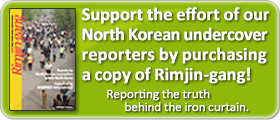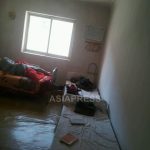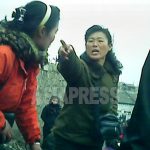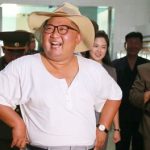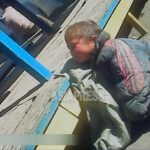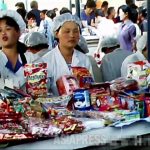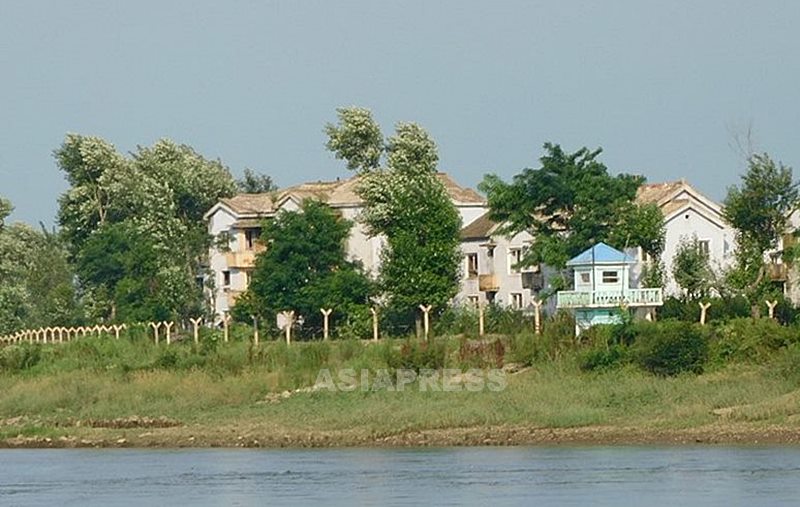
Related Articlefa-arrow-circle-right<Inside N. Korea> The Deteriorating Plight of the People (1)
When people are unable to afford to eat, they turn to illegal activities. In addition to prostitution as I mentioned above, methamphetamine trafficking, theft, and robbery are rampant. The authorities have been on the lookout for border crossings, defections, and smuggling into China, and thus created buffer zones with increased military forces throughout the Yalu and Tumen River areas. They even issued a proclamation that anyone who approached the area would be punished by military law and shot without warning.
It's not just about crime. The Kim Jong-un regime is well aware that poverty creates disorder in the social order, and has therefore began to tighten controls. For example, it has cracked down on "absenteeism" and "vagrancy" among workers at state enterprises.
Most of the state-owned enterprises in North Korea have been without food rations or fair pay for a long time. If people stay in such workplaces, they will lose their source of cash income elsewhere. Some people have taken time off work to go into black-market business or to gather wild vegetables. In response, the authorities tightened up the inspection of attendance every morning and sent the "absentees" to short-term forced labour camps called labour training units. The police have also been mobilized to detect people wandering away from their places of residence.
In North Korea, the primary method of people's governance is to have people live in a designated places and work in workplaces assigned by the government. During the famine of the late 1990s, known as the "North Korean famine," people left their workplaces and moved around the country to find economic activities to survive. Many people fled to China. There was a breakdown of order where the state could not control the people. Kim Jong-un's regime must be taking that as a lesson.
◆100% of rations paid to public officials
In order to maintain order, it is necessary to guarantee the livelihood of the policing personnel. When ASIAPRESS looked into the rationing situation of the police, secret police, party and government officials, and teachers from March to June this year, we found that almost 100% of the rationing, not only for themselves but also for their families, was a mixture of white rice and corn by default. The monthly ration is about 18 kilograms for the individual and 7 to 8 kilograms for the dependents. However, a person cannot survive on rice alone. Even if workers receive their stipulated salary, they can barely afford to buy one kilogram of rice at markets. Salt, soap, firewood for cooking and heating, coal, etc. must be purchased in cash. With a huge slump in business and a decrease in bribes, their lives are getting harder by the day.
◆Workers are malnourished and unable to go to work
What about public state-owned enterprises? Since last year, we have been investigating a large iron mine in Musan County, North Hamkyung Province. Since the beginning of this year, rations have not been provided for a few days a month. A reporting partner who investigated the issue in June reported as follows:
“There are many workers who are malnourished and cannot go to work. Even when workplace officials and police officers visit the homes of absent workers to send them to work, the officers leave when they see there is nothing to eat in the home.”
Rural areas are also suffering. Households that have run out of cash and grain are called “food insecure households," and the number of food-insecure households is increasing in farming villages during the “polikoge" period when people have eaten up all of their share of the previous autumn's harvest. In a cooperative farm in North Hamkyung Province, where a reporting partner visited, the number of food-insecure households was about 30%.
“The country is not pretending to not see it, but is ordering the top officials of the Labor Party to feed the 'Food Insecure Households' even if they have to pay for it themselves. It’s also forcing the party members to contribute food for businesses and farms. But such methods are only a temporary fix. I'm also having a hard time, but there is a limit to what I can give others,” the reporting partner lamented. Continue 3>>
- <Inside N. Korea>The Death Toll is Finally Starting to Rise. A Serious Humanitarian Crisis is a Man-made Disaster. ISHIMARU Jiro (2021-07-05)
- <Inside N. Korea> Poverty-Induced Civil Unrest Prompts Orders to Strengthen Security Around Military Bases, Police Stations, and Kim Family Statues (2021-06-28)
- <Inside N. Korea> Markets in Turmoil Across the Country: Households Register to Receive Chinese Aid and Trade Grinds to Halt as Food Prices Hit Yearly High (2021-06-23)
- <Farm investigation> Poor Harvest Predicted Already: 30% of Farms are Being Worked by "Food Insecure Households" (2021-06-21)
- <Inside N. Korea> Soaring Food Prices Cause Market Chaos: Elderly and Poor Starve as Price of Corn More Than Doubles (2021-06-16)
Editor’s notes on North Korean reporters
ARCHIVE(pdf) >>
DPRK MAP >>
